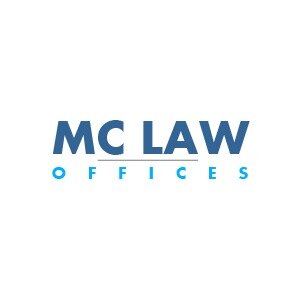Best Nonprofit & Charitable Organizations Lawyers in Port Louis
Share your needs with us, get contacted by law firms.
Free. Takes 2 min.
List of the best lawyers in Port Louis, Mauritius
About Nonprofit & Charitable Organizations Law in Port Louis, Mauritius
Nonprofit and charitable organizations in Port Louis, Mauritius, play a crucial role in addressing societal issues such as poverty alleviation, education, health care, and more. These organizations are typically registered as associations under the Registration of Associations Act, offering them a formal structure to operate. The legal landscape for nonprofits is designed to facilitate their establishment and operation, ensuring compliance and promoting transparency. However, navigating the specific regulatory requirements can be complex, necessitating an understanding of both Mauritian law and international standards governing nonprofit activities.
Why You May Need a Lawyer
There are several reasons why individuals or groups might seek legal advice regarding nonprofit and charitable organizations in Port Louis. Common situations include:
- Assistance in the registration and formation of a nonprofit entity to ensure compliance with local laws.
- Guidance on the governance structure, including drafting bylaws and policies.
- Advice on tax exemptions and obligations, ensuring financial compliance and optimal tax efficiency.
- Legal support in restructuring organizations or managing mergers with other entities.
- Resolution of disputes within the organization or with third parties, including contractual disagreements.
- Advice on international donations and funding, including compliance with anti-money laundering regulations.
- Support in implementing and adhering to human resources policies in accordance with labor laws.
Local Laws Overview
Key aspects of local laws for nonprofit and charitable organizations in Port Louis include:
- Registration: Nonprofits must register under the Registration of Associations Act, which sets out the process and requirements for legal recognition.
- Compliance: Regular reporting to authorities, including financial statements and activity reports, is mandatory to maintain transparency and accountability.
- Taxation: Nonprofit organizations can apply for tax-exempt status but must adhere to specific guidelines to maintain it.
- Governance: Organizations are required to have a governing body and must abide by defined governance structures, including regular meetings and elections.
- Foreign Funding: Receiving funding from abroad requires compliance with specific laws to prevent money laundering and ensure transparency of funds.
Frequently Asked Questions
What is the first step in forming a nonprofit organization in Mauritius?
The first step is to draft a constitution that adheres to the requirements set forth by the Registration of Associations Act and submit it for registration.
Are there specific reporting requirements for nonprofits in Mauritius?
Yes, nonprofits must submit annual returns, including financial statements and reports on activities, to the Registrar of Associations.
Can a nonprofit in Mauritius earn profits?
Nonprofits can generate income to support their mission, but profits must be reinvested into the organization’s activities and not distributed to members.
What types of tax exemptions are available for nonprofits in Mauritius?
Nonprofits can apply for exemptions from corporate tax, customs duty on imported goods, and other taxes if they qualify under specific conditions set by the commissioner of income tax.
How can a nonprofit maintain its tax-exempt status?
To maintain tax-exempt status, a nonprofit must comply with all reporting requirements, exclusively pursue its stated nonprofit purposes, and avoid any profit distribution.
Are foreign NGOs allowed to operate in Mauritius?
Yes, foreign NGOs can operate in Mauritius, provided they register with the relevant authorities and comply with local laws governing international organizations.
What is the role of the governing body in a nonprofit organization?
The governing body is responsible for overseeing operations, ensuring compliance with laws and governance policies, and steering the organization towards achieving its mission.
Can a nonprofit organization be sued in Mauritius?
Yes, nonprofits can be subject to lawsuits for various reasons, such as breach of contract or non-compliance with statutory obligations.
What are the key governance issues to consider for a nonprofit?
Key governance issues include establishing clear roles and responsibilities, regular board meetings, conflict of interest policies, and effective oversight mechanisms.
How are disputes typically resolved within a nonprofit organization?
Disputes can be resolved through internal mediation or arbitration processes as outlined in the organization’s bylaws. Legal intervention may be required for more serious issues.
Additional Resources
For further assistance, consider consulting the following:
- The Registrar of Associations for registration and compliance guidelines.
- The Mauritius Revenue Authority for information on tax obligations and exemptions.
- The Non-Governmental Organizations Trust Fund, which provides resources and support to nonprofits.
- The Council of Social Service (MACOSS) offers networking opportunities and resources for local nonprofits.
- Local law firms with expertise in nonprofit law can provide tailored legal advice.
Next Steps
If you require legal assistance with your nonprofit organization in Port Louis, it is recommended to:
- Identify the specific legal issues or questions you have regarding your organization.
- Research and select a local attorney or law firm experienced in nonprofit law.
- Prepare all necessary documentation related to your nonprofit’s activities, governance, and compliance for a consultation.
- Arrange a meeting with your chosen legal professional to discuss your needs and develop a strategic approach to address your organization’s legal matters.
Lawzana helps you find the best lawyers and law firms in Port Louis through a curated and pre-screened list of qualified legal professionals. Our platform offers rankings and detailed profiles of attorneys and law firms, allowing you to compare based on practice areas, including Nonprofit & Charitable Organizations, experience, and client feedback.
Each profile includes a description of the firm's areas of practice, client reviews, team members and partners, year of establishment, spoken languages, office locations, contact information, social media presence, and any published articles or resources. Most firms on our platform speak English and are experienced in both local and international legal matters.
Get a quote from top-rated law firms in Port Louis, Mauritius — quickly, securely, and without unnecessary hassle.
Disclaimer:
The information provided on this page is for general informational purposes only and does not constitute legal advice. While we strive to ensure the accuracy and relevance of the content, legal information may change over time, and interpretations of the law can vary. You should always consult with a qualified legal professional for advice specific to your situation.
We disclaim all liability for actions taken or not taken based on the content of this page. If you believe any information is incorrect or outdated, please contact us, and we will review and update it where appropriate.













